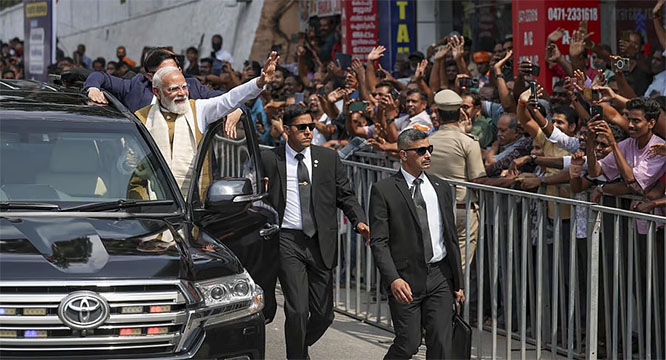
New Delhi, April 16: The government has sought to assure parents that the Supreme Court’s verdict making free education to 25 per cent children from weaker sections mandatory in private schools will not prompt the school managements to increase other students’ fee in order to shift the burden.
“I do not think that will happen. I think there would be ways and means to raise resources. We will be working with schools in order to do that. We will try our level best. Nobody will be penalised for this,” Human Resource Development (HRD) Minister Kapil Sibal told a news channel on Sunday, when asked if the burden of providing free education to the 25 per cent would be passed on to other students.
Asked who will pay the tab for the 25 per cent reservation, Sibal said schools which had not taken any benefit from the government would be compensated by the government under the Right to Education (RTE) Act.
"We have made the calculation," Sibal said. The government would incllude the provision of school uniforms and textbooks in the twelfth Five Year Plan to those students admitted in 25 per cent quota under the Act.
As per the Act, schools providing free and compulsory elementary education would be reimbursed expenditure so incurred on the students from weaker and disadvantaged sections to the extent of per-child-expenditure incurred by the state concerned, or the actual amount charged from the child, whichever is less.
“The amount of disbursement to schools against the expenditure incurred on students from weaker sections by them would differ as it will be decided on the basis of the RTE rule formulated by each of the state the implementation of the Act,” a senior official of the HRD Ministry told Deccan Herald.
According to a rough estimate, the expenditure to be incurred per child would vary from Rs 6,000 to Rs 17,000. In Delhi, the government incurs an expenditure of Rs 14,300 per annum per child, sources in the ministry said.
Sibal suggested that the schools could raise resources from their funds if they had their resources in surplus. They could also tap the funds provided by corporates under their corporate social responsibility obligations.
"You have many corporates who are committed for corporate social responsibilities. Schools can actually tap their resources so that there is no burden on parents," he said.
Free education
He underlined that Rs 2.31 lakh crore had been earmarked for implementing provisions of the Right To Education Act Act in the eleventh Plan period. Providing free education to all the children was not possible for the government and therefore, private schools had been made responsible along with those run by government to achieve the mission.
“The gap between the rich and the poor is enormous. We must move forward and we must have an inclusive society in which all must participate. After years of deliberations, we thought we must try and integrate disadvantaged communities into the school. Social integration is the motive behind the move," he said.
The RTE Act makes free and compulsory education to children between 6 to 14 years of Class I to VIII. When asked what would happen to those students to be admitted under 25 per cent quota after class VIII, Sibal said there could be a rethinking on the issue after eight years.
"After eight years, the whole situation will change. There will be a government at that time. Maybe there will be a rethinking on it."
To a question why boarding schools were kept out of the purview of the Act, he said they had a different ecosystem where classes, generally, start from Class VI onwards.
"As and when we feel they should come under purview of the act, we will think of it," he said.






Comments
Add new comment